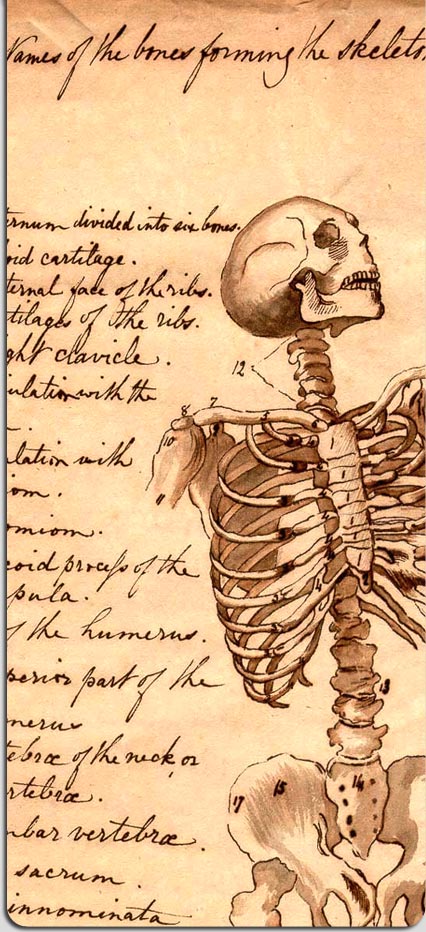How To Get Into Medical School, Part Two
When we last spoke , we had just finished our application and were patiently waiting for…
Secondaries
Secondaries come in all shapes and sizes. Some schools have big long lengthy sections, others have a few quick questions. Be sure to save anything you submit (which
is usually online now), as other schools are likely going to ask you similar questions and you can make it work, a la
Tim Gunn
.
The key in secondaries is to give schools something new about you, or something that you just touched on but would like to develop further (often the former is easier to do based on the question). Like I said before, the faster your turnaround on the secondaries, the faster you can hear back about an interview usually. I think I gave myself maybe a week per secondary–but again, did a ton of editing in that week. Here are some examples (looking back, I’ve found typos and grammar errors that I must’ve included–ack!):
UChicago Secondary
Yale Secondary
Stanford Secondary, including drafts (final version is at the bottom)
Note, I also went back and updated my personal statement to include a couple drafts I went through with that one, too. Thought that might be helpful to see how they’ve changed.
Interviewing
Congrats! You’ve got an interview! You’re most of the way there. My feeling on interviews is this: you’re certainly a potential admit at this point.
Now you just need to prove to them that your awesomeness on paper is equal to your awesomeness in person. Smile, be social, be friendly, be polite, be humble, and be
yourself. (Some of that may be conflicting, of course.) Be someone you would want to be classmates with–because that’s how your student interviewer will
be evaluating you partially.
But also be prepared. Here’s an insanely long list of interview questions I compiled . Certainly no need to prepare yourself to that degree, but give the list to a friend, and have him or her ask you questions for half an hour. It’ll do wonders for making your first interview easier–it’s one thing to review the questions on your own and think you know the answers, but another entirely to be able to say them and explain them aloud.
Being prepared also means coming in with a list of your own questions. Show you’ve done your research. They want to know why you want to go to their school, why you’d be a good fit for their program. They already know for the most part that you want to go to A medical school. Right before the interview day, I went to the school’s website, jotted down facts about the school, things unique to the school, other things I might be interested in (the school’s free clinic opportunities, opportunity to get an MPH, etc) and brought it with me on interview day. I also made a list of questions based on those facts, and brought a copy of my personal statement and the secondaries to the school, so they’d be fresh in my mind if anyone asked about them.
Interviews are the time to toot your own horn. Now is not the time to be modest. But be humble. There’s certainly a fine line between bragging and arguing for yourself, but your goal at the end of the interview day is to make them think, “Wow, we would be silly not to accept this person!” I go into interviews with two things in mind:
1) I have an agenda, and that is to let the interviewer know certain key things about me that are impressive, unique, or important about who I am and what I will
bring (and I will make sure that I get those things across, somehow incorporating them into an answer)
2) I am there to argue my case and convince the interviewer that he or she should be fighting for me–that it would be their loss–and a huge one–not
to accept me.
Second Looks
Congrats! You got an acceptance or ten! Now it’s time to decide where to go. It’s the same thing you’ll hear anywhere–go with your gut. Go
with the feeling you get on the interview day. Do the people seem genuinely happy? Could you see yourself walking around there? Learning there? Will there be things
to do there in your free time? You can make a “pros” and “cons” list, but in the end, I think it boils down to the feel and the location.
But if you’re not sure, or if you can’t remember everything, go do a second look. Most schools offer them. I actually didn’t have a great awesome interview day at Stanford (where I currently am). I really wanted to like it, but I didn’t as much as other schools. I ran into a couple Stanford students at an AMSA convention, who basically said I’d be stupid not to go there if I got in. So I did a second look at Stanford, and I was sold. Not because of the great things the administrators said about the place, but because of the people I met as my future classmates. Second looks may try to wow you with financial aid numbers, or class skits, or parties with free alcohol, but go to them to see who your new classmates might be . That should be what sells you. They’ll be some of the most important people in your life for the next 4 years.
Final Advice
All things being equal, go to a pass/fail school. I think it eliminates a lot of competition from the get-go, and weeds out and disables any would-be gunners or
gunner-like behavior.
Good luck!
